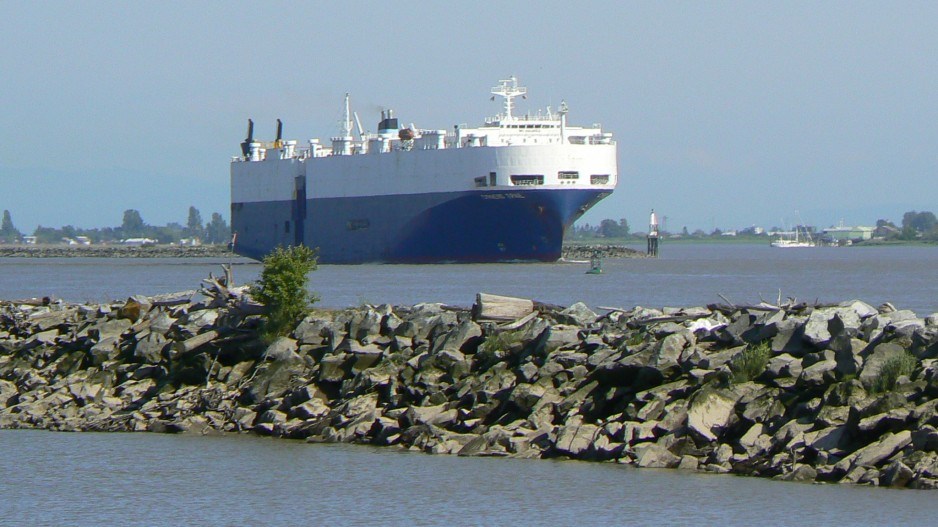A Port Metro Vancouver-commissioned report has deemed the Richmond pipeline proposal to bring jet fuel up the Fraser River on panamax tankers and then pipe it to YVR an acceptable risk.
A consortium of airlines under the Vancouver Airport Fuel Facilities Corp. (VAFFC) wants to build a $100 million fuelling station and pipeline in Richmond. The plan would be to transport jet fuel up the south arm of the Fraser River, offload it to a tank farm and pipe it to Vancouver International Airport via a 15-kilometre pipeline.
Up to 80 million litres of jet fuel would be stored at the tank farm at the foot of Williams Road in Richmond.
The B.C. Environmental Assessment Office is reviewing the proposal. As part of its own due diligence, Port Metro – which is responsible for marine traffic – commissioned Det Norske Veritas Canada Ltd. to conduct a risk assessment.
The report concluded that the main risk of a jet fuel spill would come from a tanker striking something or running aground.
“Further, the assessment concluded that the great majority of the risks identified were acceptable against the defined risk acceptance criteria,” the report concludes. “The risk to the environment was found to be acceptable with all justified mitigations applied. None of the risks were assessed as unacceptable.”
Vapor (Vancouver Airport Pipeline Opposition for Richmond), a Richmond-based organization opposed to the pipeline proposal, is criticizing the report for failing to take into account the risks associated with the marine terminal and tank farm.
“The scope of this study was limited, as related to VAFFC proposal, only to hazards of manoeuverability and navigability of towed giant panamax jet fuel tankers and barges on the Fraser River,” retired engineer James Ronback concludes in his review of the Det Norske Veritas report for Vapor.
“It does not take into account the enormous hazards posed by the tank farm six storeys high with 80 million litres of toxic and flammable jet fuel … to be built on an extremely hazardous earthquake liquefaction zone in Richmond. Earthquakes will not impact a jet fuel tanker in the river as much as it would a tank farm and jet fuel-handling facilities on land.”
The environmental review of the VAFFC proposal is on hold, as an alternate route to the one originally proposed for the pipeline through Richmond is considered.
YVR currently gets about 80% of its jet fuel from the Trans Mountain pipeline. The rest is trucked to the airport.
The VAFFC says the 40-year-old Trans Mountain pipeline is maxed out and that the airport needs a more reliable source of jet fuel.
Opponents of the proposal – which includes Richmond’s mayor and city council, as well as Richmond East Liberal MLA Linda Reid – say the VAFFC has not properly explored all the alternatives for getting jet fuel to the airport.




